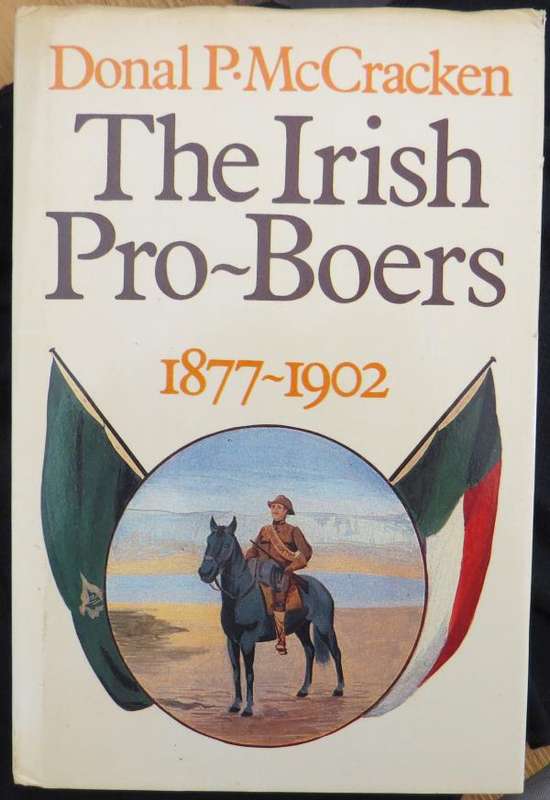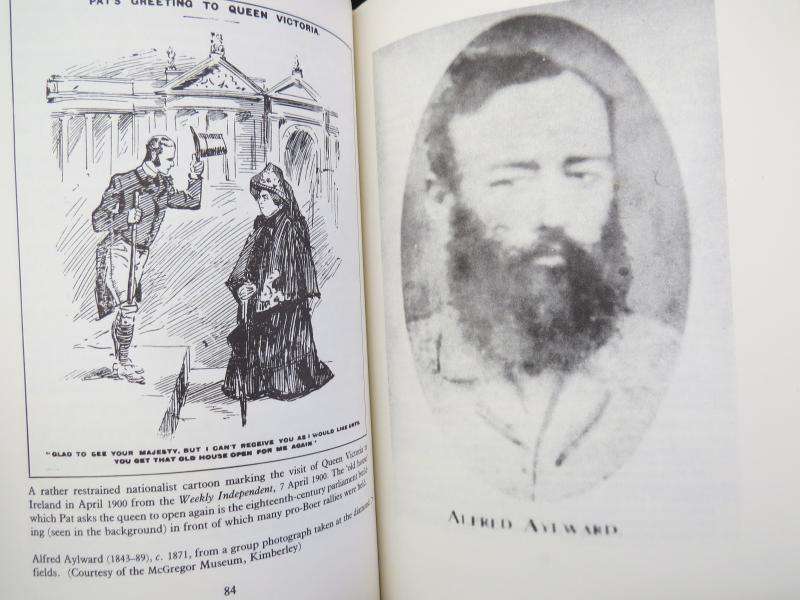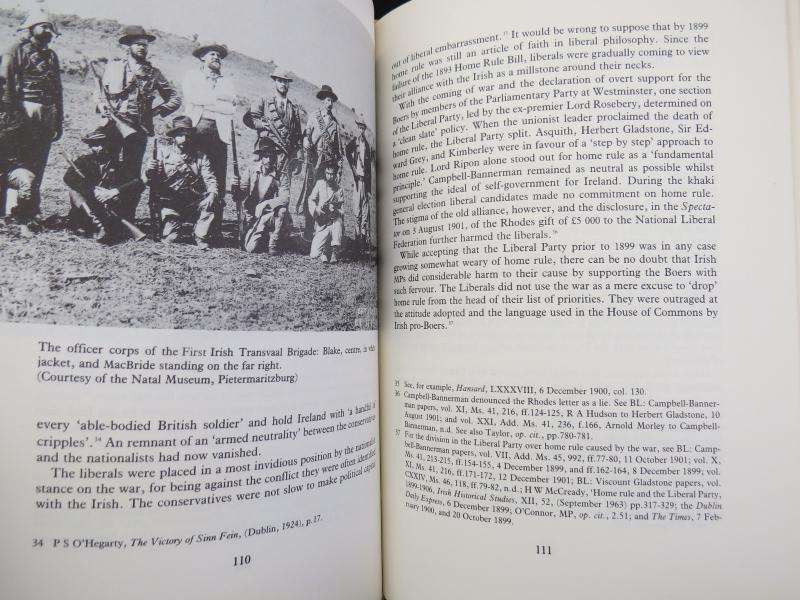





The Irish Pro-Boers 1877-1902 - Donal P. McCracken
Check my rate
| Main centres: | 1-3 business days |
| Regional areas: | 3-4 business days |
| Remote areas: | 3-5 business days |






| Main centres: | 1-3 business days |
| Regional areas: | 3-4 business days |
| Remote areas: | 3-5 business days |
Condition: Good. DJ has light surface damage on left bottom side at the back. Full page gift message on flyleaf. Book otherwise tidy with tight binding.
Format: Hardcover with DJ
Published: 1989 (Perskor)
Pages: 189
ISBN: 9780628032843
In December 1899 rioting broke out in Dublin, the like of which had not been seen in generations. Unique in the islands long and bitter history, these disturbances concerned not Ireland but South Africa, another Ireland seven thousand miles away. On the field of battle Irish regiments in the British army faced Irish commandoes fighting with Boer forces, two colonially beleaguered peoples in solidarity. This surreal confrontation heightened the pro-Boer fever which swept natio-nalist Ireland as it took the struggle of the Transvaal Republic against British imperialism to its heart.
The new literary intelligentsia, W B Yeats, George Moore and Lady Gregory enthusiastically supported the campaign. The young Sean OCasey watched with horror as the mounted Dublin police sabre-charged a crowd of Irish pro-Boer demonstrators, including the beautiful Maud Gonne, muse of the poet Yeats; the socialist leader James Connolly; and the future leader of the newly independant Ireland, Arthur Griffith, recently returned from editing a newspaper in the Transvaal. On lamp posts and on walls leaflets and posters pro-claimed the cause of Kruger and his nation. Boer generals became Irish folk heroes, ballads were written in their praise and clubs for the national sport of hurley were renamed after them. In city, town and village an alien flag - the vierkleur - fluttered defiantly.
In this book Dr McCracken, using hitherto unpublished material gathered in Ireland and South Africa has pieced together the development of the most influential and violent of the European pro-Boer movements, from its infancy in the days of the great Parnell to its zenith during the second Anglo-Boer war. In addition he throws light on the extraordinary twist of the arch imperialist Cecil Rhodes financing the Irish nationalist party in the British parliament and on the activities of Irish revolutionaries in South Africa.
This forgotten story will appeal not only to those interested in Africana or the history of Ireland but also to the observer of the modern Irish and South African questions.